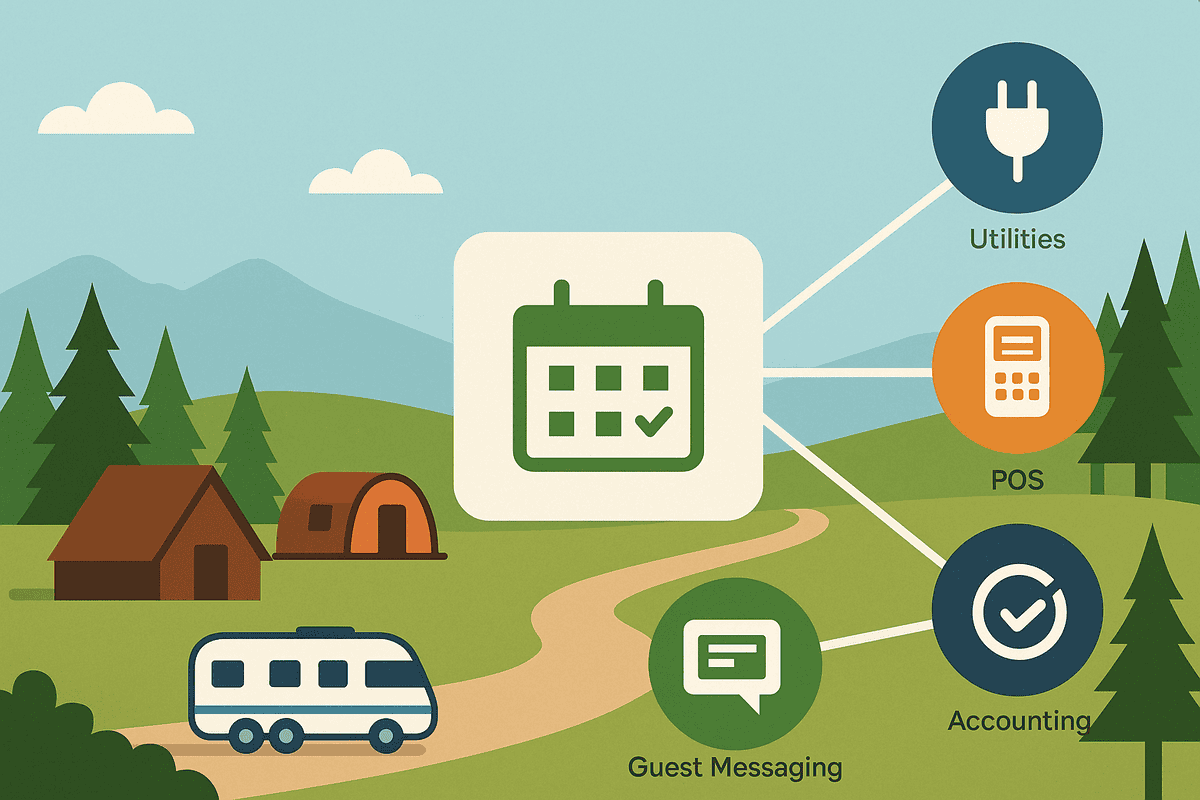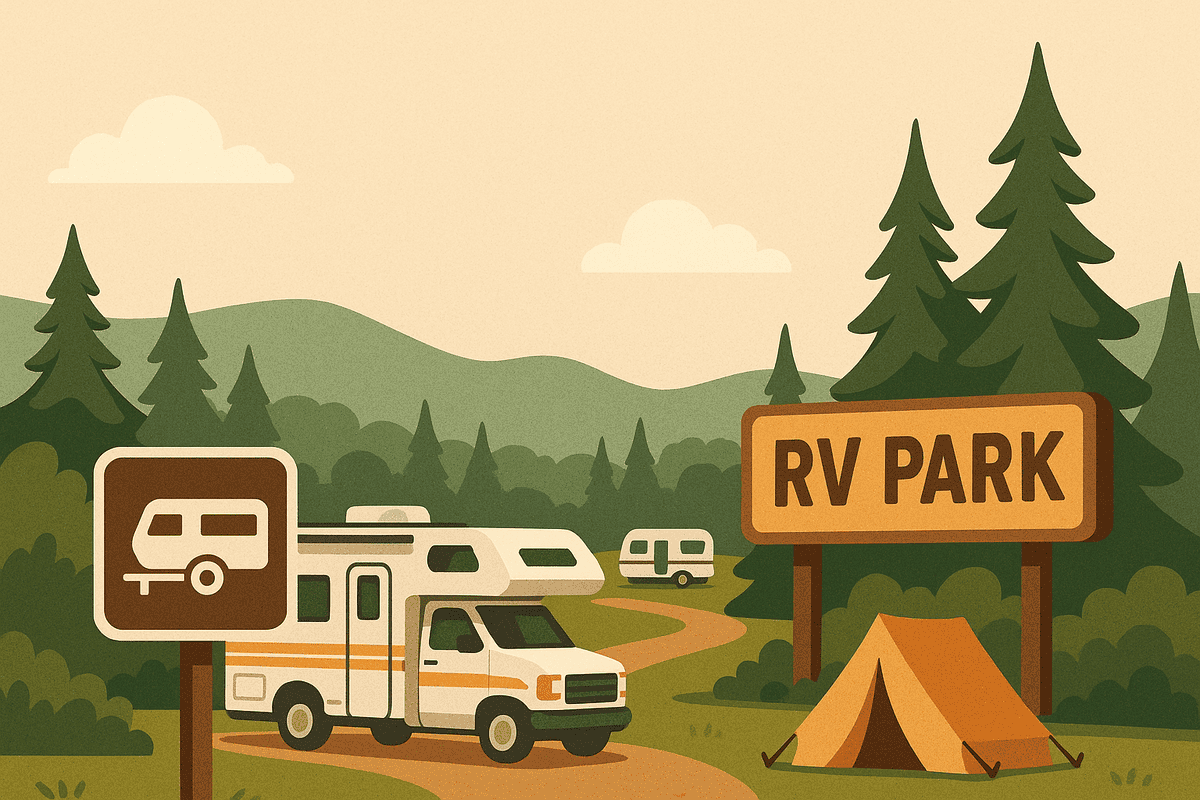The Psychology of Online Booking: What Makes Guests Click “Confirm”
Booking a stay at a campground or RV park isn’t just a transaction. It is an emotional decision. While price and availability matter, they’re far from the only influences. Behind every successful booking lies a blend of cognitive biases, emotional triggers, and subtle design cues that reassure guests they’re making the right choice.
For campground and RV park operators, understanding these psychological drivers isn’t just fascinating—it’s essential. When the digital booking experience aligns with actual guest psychology, properties see increased conversions, reduced abandonment, and stronger trust.
Here is the psychology of online booking and uncover what truly makes campers commit to clicking “Confirm.”
1. The Power of First Impressions
First impressions form in milliseconds, and they set the tone for the entire decision-making process. If a booking page looks cluttered, outdated, or slow, campers often question the park’s overall quality.
Remember that design equals trust: A clean, modern interface reassures visitors that the campground or RV park is well-managed.
Speed matters: Even a three-second delay in page load time can cause potential guests to abandon the process.
Consistency builds confidence: If the booking engine feels disconnected from the main website, guests may fear a scam.
Think of your booking page as your digital check-in desk: it needs to look professional, feel reliable, and immediately establish trust.
2. Choice Architecture: Guiding Without Overwhelm
When people face too many options, they can become paralyzed. This is a phenomenon psychologists call choice overload. In camping, this happens when sites list dozens of campsite types, hookups, or add-ons without clear distinctions.
Smart booking systems use choice architecture to guide decision-making. In order to do this the systems follow simple rules.
They highlight the most popular choice. Guests often follow social proof, so labeling an option as “Most Booked” or “Best Value” encourages commitment.
They reduce visible complexity. Instead of showing every detail at once, use collapsible menus or filters.
They anchor prices. Showing a higher-priced option first makes mid-range choices feel more reasonable.
The goal is to help campers feel empowered, not overwhelmed.
3. Social Proof: Reducing Uncertainty
Camping trips often represent valuable family time or memorable adventures. Guests want assurance they’re making the right choice, which is why they rely heavily on social proof.
Ratings and reviews strongly influence decisions. Even a half-star difference can swing a booking. User-generated photos (like tent setups or RV pads taken by past visitors) feel more authentic than promotional shots. Endorsements and badges (“Voted Best Family-Friendly Park” or “Trusted by 5,000 travelers”) boost confidence.
If other campers had a great time, new guests are more likely to feel secure booking their stay.
4. Scarcity and Urgency: The Power of FOMO
Few triggers are more effective than scarcity. Phrases like “Only 2 sites left this weekend” or “Offer ends in 12 hours” spark fear of missing out (FOMO).
Examples of urgency done well include real-time counters showing how many people are viewing a site, countdown timers for limited-time discounts and highlighting peak weekends (like holidays or festivals) likely to sell out.
Scarcity transforms a casual decision into an urgent one, nudging hesitant campers to act quickly.
5. Emotional Imagery and Storytelling
At its core, camping is about experiences, not just spaces to park an RV or pitch a tent. Psychology shows us that emotion drives decision-making more than logic.
Lifestyle imagery works best: A family roasting marshmallows by the fire sells the site better than a bare photo of a gravel pad.
Story-driven copywriting creates vision: “Wake up to the sound of birdsong and mountain views” is more compelling than “Standard Tent Site.”
Contextual personalization helps—messaging framed around family adventures, relaxation, or outdoor sports resonates with travel motivations.
When campers see themselves in the story, they become more likely to confirm.
6. Reducing Friction: The Path of Least Resistance
Even when the intent to book is strong, friction can derail the process. Psychology shows that the more effort something requires, the less likely people are to complete it.
Friction often appears in three areas. Forms that are long and complex with unnecessary fields cause drop-offs. Payment limitations with restricting payment options frustrates campers who prefer PayPal, digital wallets, or buy-now-pay-later services. Mobile design that is clunky can be fatal when many campers are booking on the road or via smartphones
By removing obstacles, campgrounds and RV parks make booking feel effortless—keeping momentum high.
7. Price Perception: It’s All in the Framing
Pricing is never just about numbers. It’s about perception.
Framing makes a difference: “$150 for the weekend” feels better than “$75 per night.”
Bundling increases value: Including firewood, parking, or activity passes makes guests feel they’re getting more for their money.
Transparency prevents distrust: Hidden fees (like mandatory service charges) not only discourage bookings but also damage reputation.
Guests don’t always choose the cheapest option—they choose the one that feels fair and offers value.
8. Cognitive Ease: Familiarity Wins
People instinctively prefer things that feel familiar. This concept, known as cognitive ease, explains why standardized booking layouts tend to perform well.
Progress bars reassure guests they’re moving toward completion.
Predictable UI elements like calendars, dropdowns, and site photos reduce cognitive load.
Consistency across channels (desktop, mobile, third-party platforms) avoids confusion.
The smoother and more familiar the journey feels, the more likely campers will stick with it.
The smoother and more familiar the journey feels, the more likely campers will stick with it.
9. Trust and Risk Reduction
Every booking involves risk: campers are sending money to a park they haven’t experienced yet. The more you minimize perceived risk, the more comfortable guests feel clicking “Confirm.” There are several ways to reduce risk.
Flexible cancellation policies reduce fear of commitment.
Visible security measures (SSL, payment processor logos) reassure data safety.
Clear policies on check-in, deposits, and refunds prevent surprises.
Trust isn’t just nice to have—it’s the foundation of every successful booking.
10. Post-Booking Reinforcement
The psychology of booking doesn’t end with confirmation. Guests often feel buyer’s remorse after big purchases. Smart follow-up can prevent cancellations and build excitement.
Instant confirmation emails reassure the guest that everything went smoothly.
Personal touches like using the camper’s name or mentioning their chosen site create connection.
Pre-arrival communication (e.g., packing tips, park maps, or activity guides) maintains enthusiasm.
When done right, post-booking reinforcement turns relief into anticipation.
11. Personalization: Making Campers Feel Seen
Travelers increasingly expect tailored experiences. Personalized booking flows feel more relevant and increase the likelihood of completion.
There are several ways to personal booking. Behavioral targeting can suggest site upgrades based on browsing history. Geographic cues will display prices in local currency. Past guest data can offer returning guests their favorite sites or loyalty discounts.
When campers feel the process is tailored to them, commitment grows stronger.
12. The Comfort of Control
Psychologically, people crave control, especially when making high-stakes decisions like planning a trip. Booking tools that give campers autonomy reduce anxiety.
Flexible filters let guests sort by site type, hookups, or pet-friendly options.
Interactive maps empower campers to choose exact sites.
Self-service options (like easy date changes) provide confidence that guests remain in charge.
A sense of control transforms booking from a stressful choice into an empowering action.
13. Anticipation and Reward
Booking is more than logistics. It’s the first step toward a rewarding outdoor experience. Psychologists note that anticipation itself generates happiness.
Create that anticipation. Use imagery and language that inspire anticipation. Campfires, stargazing, and adventure heighten emotional payoff.
Use Post-booking countdowns or “Your trip is in 10 days!” reminders build excitement.
Frame upsells as enhancements. Add-ons like firewood bundles, kayak rentals, or guided hikes feel like part of the reward.
This anticipation effect keeps campers engaged long after they’ve clicked confirm.
Bringing It All Together
At its core, the psychology of online booking is about reducing uncertainty, inspiring confidence, and sparking excitement. Guests don’t confirm simply because a site is available—they do so because the booking journey reassured their expectations and tapped into their emotional motivations.
The most successful campground and RV park booking flows:
- Make powerful first impressions.
- Guide choices without overwhelming.
- Use social proof to build trust.
- Employ scarcity and urgency responsibly.
- Tell stories with images and words.
- Remove every possible friction point.
- Frame price as value.
- Offer familiarity, trust, and control.
- Reinforce decisions after booking.
- Personalize the journey.
Keep anticipation alive.
Conclusion: Designing for the Confirm Click
At its heart, online booking is about reducing uncertainty, inspiring confidence, and building excitement. Guests confirm not simply because a room is available but because the experience has eased their doubts, reassured their expectations, and tapped into the emotional reasons they want to travel.
In today’s crowded hospitality market it is vital to making that “Confirm” button feel not only safe but smart and thrilling. That’s the competitive edge!




